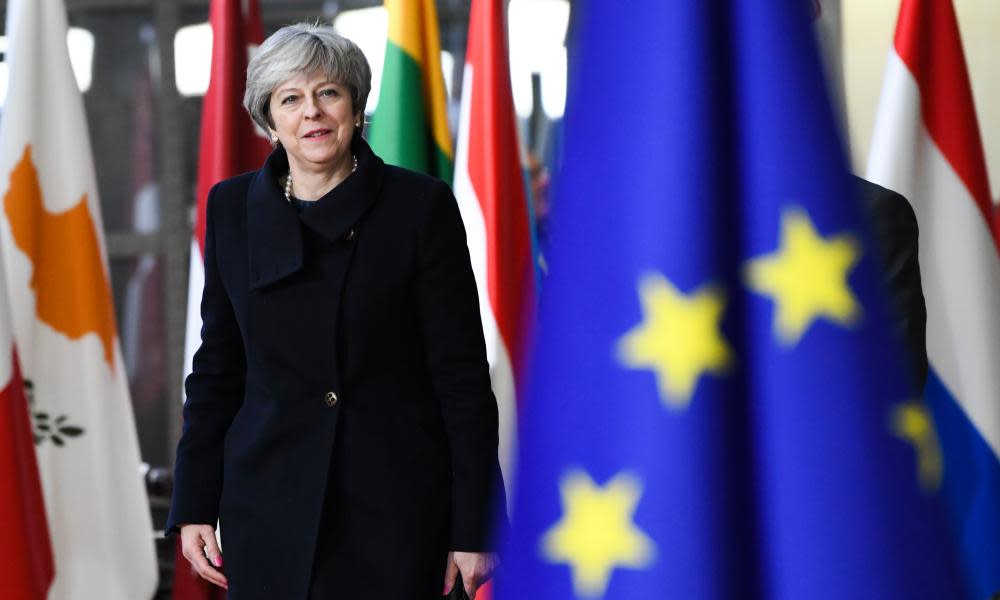Theresa has made up with the EU leaders. Now for the Tory Brexit rebels | Simon Jenkins

Last night Theresa May was awarded the apparently unique accolade of applause at an EU leaders’ banquet. Excellent. But why were they applauding? Was it relief at her emollient tone? Was it encouragement for the next round in the Brexit wars, or perhaps instinctive sympathy from elected colleagues at her domestic plight? It was significant that the clapping was led by Germany’s Angela Merkel, whose plight is as dire as May’s.
What the British prime minister appears to have achieved is to make Europeans realise that Brexit is going to happen, and they all have an interest in its being “orderly”. She has persuaded them that, after a year of Michel Barnier’s punishment beatings, sweet reason might be a better way of progressing.
So far, good news. But now, and before any substantive talks on future trade, a UK/EU transition deal must be negotiated, and fast. It must cover commercial relations with the EU for a period after 2019, pending talks on a permanent deal, and that cannot legally be reached before then. Here is the rub. Such a transition deal can only be asymmetrical: Britain must continue to obey EU trade regulations, treaties and jurisdictions without any role in their adjustment. Unless the UK is to fall off the proverbial cliff in 2019, it means de facto customs union for the duration.
At this point, a steam train hurtles round the bend, heading straight for a divided parliamentary Conservative party. Customs union, even as a transitional measure, comes packed with all the backsliding baggage so loathed by Brexit fundamentalists. It might tie Britain’s hands in third-party talks. It might mean a shortcut back to the single market, the Norway option or the Swiss gambit.
Since the overwhelming weight of evidence is that a majority of the public, business and the political community would be entirely happy with such an outcome – transitional or even permanent – this should pose no problem for May. She is honouring her mandate to leave the EU. Implementation is for parliament to determine.
That is why she should at least take comfort, not dismay, from this week’s Commons defeat. Whatever anyone says, it was code for soft Brexit. Britain clearly needs a customs union, and then a negotiated version of a single market. That is bound to mean concessions on trade treaties, regulations and European court jurisdiction, for no other reason than they make sense.
It is not May’s parliamentary enemies this week who should trouble her. It is her fundamentalists, and she must sooner or later confront and isolate them. She knows she must leave the EU sensibly, not stupidly or chaotically. To do so, she must make friends, not just of her dining companions in Brussels, but of the soft-Brexit rebel Tories who deserted her in the Commons. She is going to need them, badly.
• Simon Jenkins is a Guardian columnist

 Yahoo News
Yahoo News 
